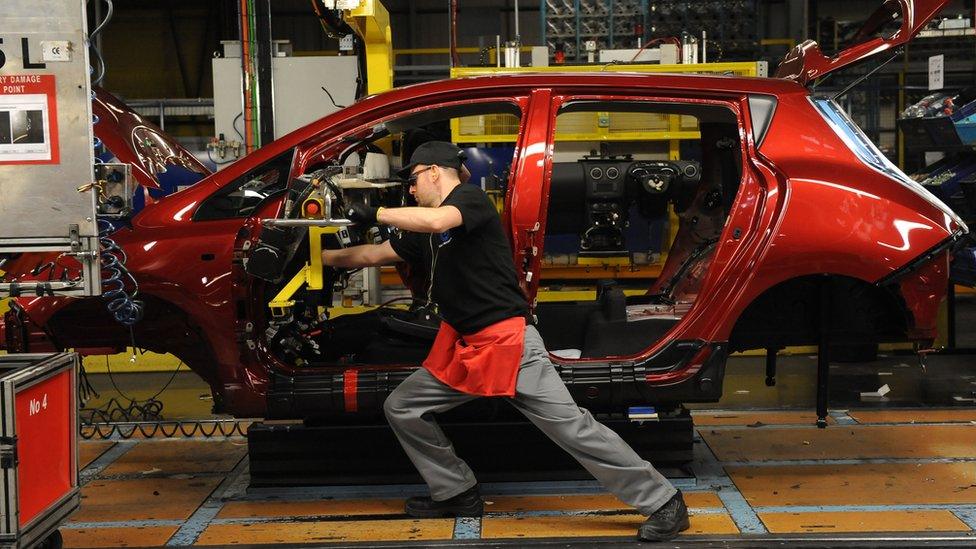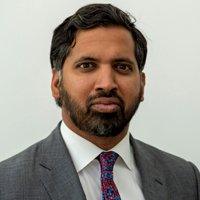Turbulence and trade-offs: Why economics matters
- Published
- comments
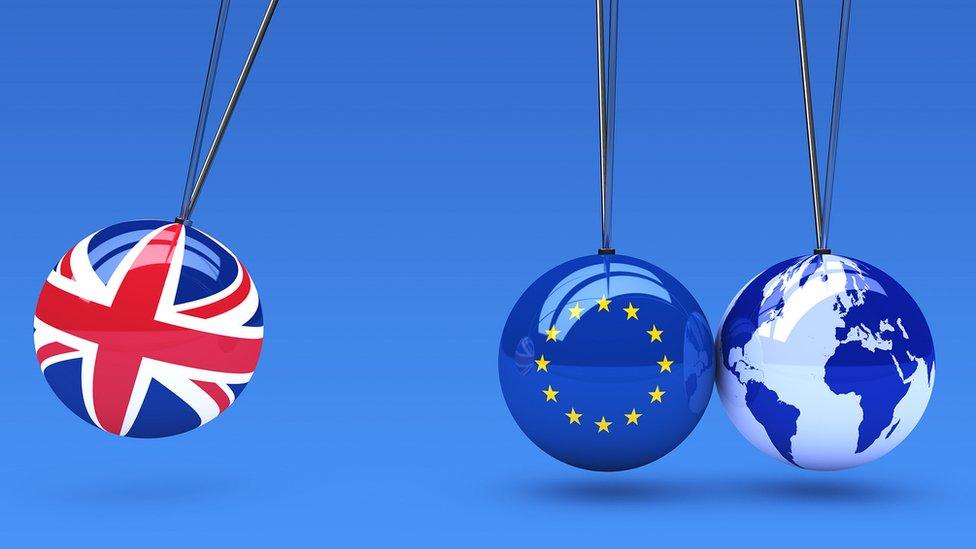
Readers - a quick hello from me, the BBC's new economics editor. I'm going to be writing about almost everything from a economic perspective, and breaking some interesting stories on this blog. Here is my first high altitude take:
The economy is at a crossroads in the UK.
The indications right now are consistent with a stalling economy, perhaps a contracting one, meaning there is even a small possibility we are in recession.
Those signals are coming from economic data, from soft corporate results and they are raising expectations that an unwanted item could be awaiting the new Prime Minister and Chancellor - the first negative quarter for the economy for 7 years.
The wider European economy is not in the rudest of health either, with Germany's manufacturing juggernaut slowing down sharply and Italy's chronic fiscal problems exacerbated by its unstable government.
An unprecedented double-edged challenge to seamless trade comes from the erratic and unpredictable Brexit negotiations, affecting everything from the price of cheese to the flow of manufacturing parts, and the post-Brexit novelty - for some the very essence of EU withdrawal - of the UK fighting its own corner in choppy global trade seas.
Over the next 12 months, it won't be about projections, forecasts and crystal balls - the impact of increasingly likely fundamental changes to trading arrangements with the UK's biggest single trade partner will become tangible, observable and impossible to ignore.
A long time coming
The seeds of this economic uncertainty were sown long ago.
What we are seeing right now in global politics is, at least partly, the culmination of a decade-long Roadrunner moment after the trauma of the financial crisis.
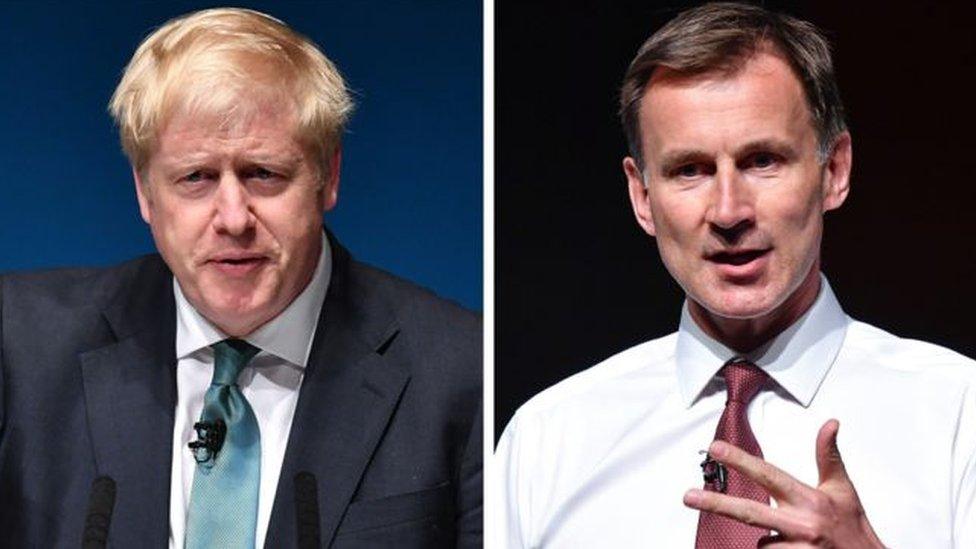
The next Conservative party leader and prime minister may be facing a stalling economy: Boris Johnson and Jeremy Hunt are vying for the role
That moment could and perhaps should have given rise to an immediate global round of trade protectionism, economic nationalism and turbulent diplomacy.
It did not then. But it was merely postponed rather than entirely prevented.
The consequences appear to be with us now in the form of a slow motion global trade war, with tariffs, tensions and declining co-operation.
It was the action of central bankers, above all, in printing money, pumping trillions of pounds, dollars, euros and yen, that stalled an immediate political reaction to the 2008 financial collapse. But the quantitative easing anaesthetic has now worn off and its unwanted side effects are also still being felt in inflated house and other asset prices, and cuts to living standards that are now starting to reverse, but workers, especially the under 50s' have barely recovered from a living standards lost decade.
So, no surprise at the fertile conditions created by economics for a global political backlash against, well, almost everything really.
But that volatile political brew is now making economics even more difficult to predict.
Central bankers, such as Mario Draghi and Mark Carney, commanded volatile markets in uncertain times with force of will, rhetoric, and their institutions' ballooning balance sheets.
It seemed like a free lunch. The bill always arrives eventually and seems likely to be the dilemma of their successors.
The real question is how far does this now go?
China and the US continue to spar over everything from soya to steel.
The fundamental axis of the entire world economy, since the 2001 accession of China to the World Trade Organisation, seems to be breaking before our eyes. The workshops of the world are under strain. The unofficial Sino-US compact that saw manufacturing and jobs outsourced East, and in return, dirt cheap prices, cheap dollar lending and raised living standards exported back West, unravels with unknowable consequences.
Before the crisis, the presumption in the US and Europe was that the East would become more like the West. Open economies would bring more prosperity and more open democracy, and a smaller size of the state.
Perhaps we are, in fact, becoming more like them.
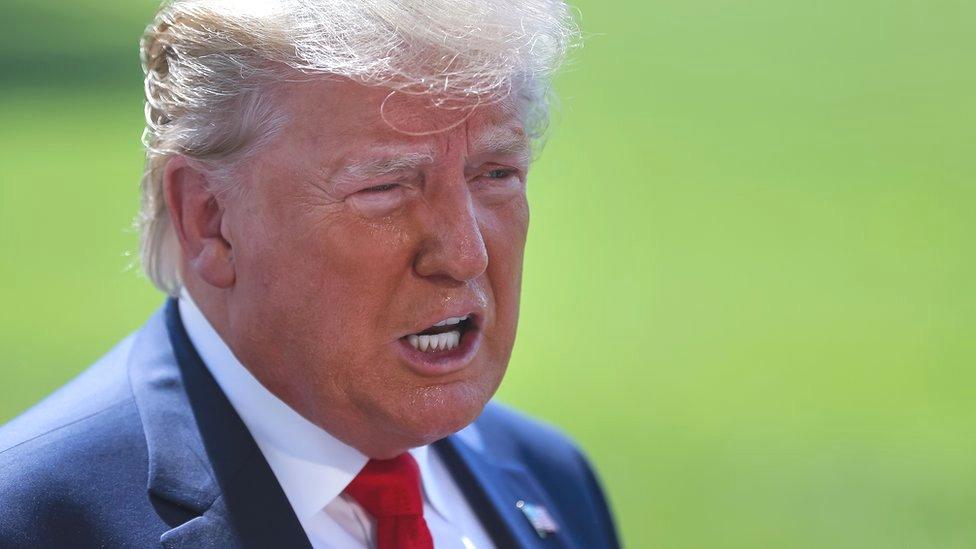
US President Donald Trump claims that trade wars are 'easy to win'
The financial crisis has had an enduring political legacy. Where the state stepped in most spectacularly to bail out the banks, in the US and here in the UK, public opinion seems now more comfortable with governments at least claiming to be stepping in, not stepping back.
President Trump promises Rust Belt workers that he will back them by starting trade wars that are "easy to win". But it was his predecessor who won an election partly after a boast that he had kept "General Motors alive", and whose chief trade negotiator warned that Americans were not buying into the idea that cheap T-shirts were a price worth paying for lost jobs.
Here, a Conservative leadership campaign competes over endless public spending promises, with MPs lobbied with a message of "spend spend spend". The successful Brexit referendum message was fundamentally about a stronger British state, with more money promised to be spent on public services.
Beyond the big picture
So there will be a tidal wave of economic news in the coming months from a new fiscal approach, a possible return to the polls, the race for a new Bank of England Governor, Brexit, third party trade negotiations and the China-US tensions.
But beyond the financial big picture, other currents are altering the way economics function.
Data and unequal access to information, even your own information about yourself which is now in the hands of Big Tech companies is one of the big issues of our time. But this new form of inequality also raises fundamental issues about the economy and also the laws of economics itself, which mostly presume that information is shared perfectly.
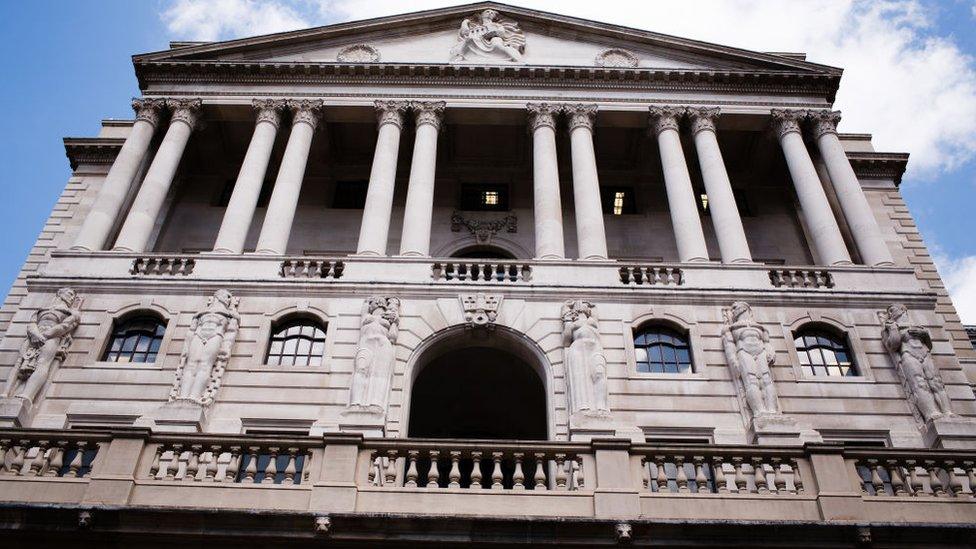
The search has begun for a new Governor of the Bank of England
There are fundamental economic questions which arise from attempts to deal with environmental problems. The biggest one is simply this - are people really willing to adapt their lifestyles or even livelihoods to make the changes deemed necessary for the environment?
And in the UK particularly, ageing should totally transform the nature of state spending. Difficult problems, even when they can be seen beyond the clouds of the Brexit process, are being parked, ignored and wished away.
Economics is not just about interest rates and sterling values and stock market crises, it is a lens on almost everything around us, from the technology you are using to read this, to the forces shifting the levers of global politics.
While the record of economic forecasting is rightly questioned, economics offers an invaluable and revealing way to look at the world's complicated problems. Yes, trade will loom large, but fundamentally, economics is about trade-offs. Trade-offs that many political leaders ignore or actively attempt to deny exist.
I am thrilled to return to report this world as BBC economics editor after five years dabbling in covering the mainly dark corners of political dysfunction.
It was in a prominent live interview I did that the contention that this country had "had enough of experts" became notorious. I'm not sure that is the case now. I'm back on this numbers beat because I contend that economics provides a better way to the explain how the world works, and why and when it doesn't work for some people than the goings-on in Westminster.
Some of these stories hide in plain sight, in your lives, and in your families and home towns.
Get in touch here or on social media @faisalislam, and help shape the BBC's coverage of these extraordinary times.
- Published4 June 2019
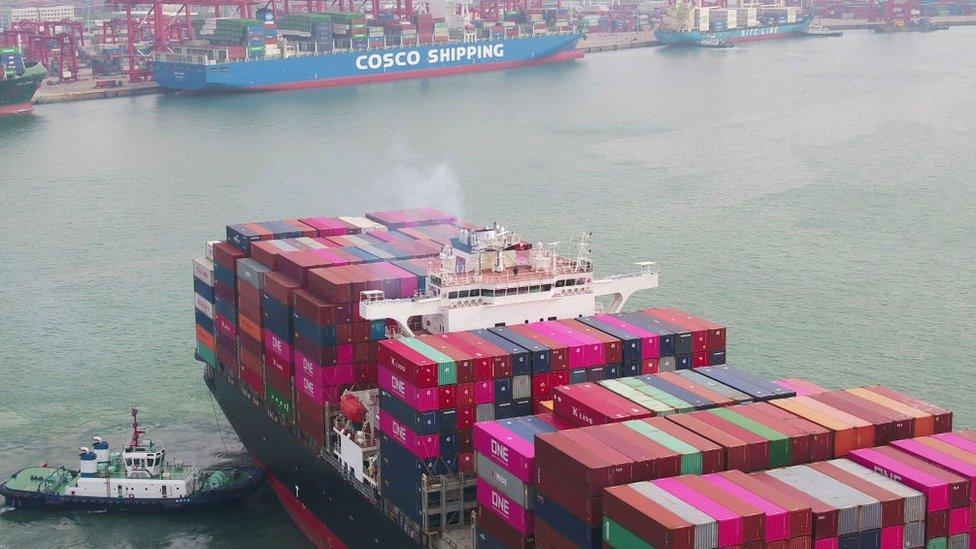
- Published9 May 2019
